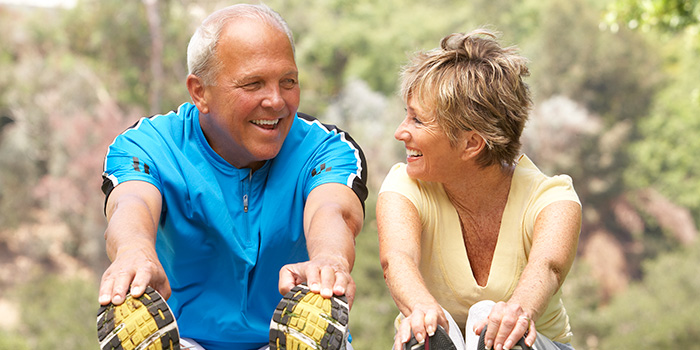4 Tips to Live Longer From the Oldest People in the World

There have been plenty of studies to uncover what might lengthen or shorten one’s lifespan. And a great amount of attention has focused on lifestyles that might be more or less healthy. But, while that can be instructive, what about taking a look at the people who actually live longer?
Dan Buettner, the author of the bestselling New York Times book The Blue Zones: 9 Lessons for Living Longer and the People Who’ve Lived the Longest did just that.
Buettner spent years following longevity studies and surveying communities around the globe to find healthy, happy people who live longer than most. Buettner borrowed the “Blue Zones” term from demographers, who studied longevity on the island of Sardinia off the coast of Italy. To Sardinia, Buettner added Okinawa, Japan, the Nicoya Peninsula in Costa Rica, the Greek island of Ikaria, and the community of Loma Linda in California.
So, what secrets did those communities have? Here are four of the common characteristics Buettner found.
4 Tips for Human Longevity From the World’s Longest-Living People
1. They Eat Lots of Leafy Greens and Legumes
Research revealed that people who live in the Blue Zones consume predominantly plant-based diets that feature leafy greens and legumes.
They aren’t vegetarians but they eat small amounts of meat, and beans are their main source of protein.
“Beans (legumes) also provide a cornerstone to the Blue Zones diet,” Buettner wrote in his book. “Diets rich in legumes are associated with fewer heart attacks and less colon cancer.”
Takeaway tip: Eat spinach, kale, arugula, and other tasty greens often and increase your intake of beans. Rinsing them before use will help remove the digestive issues commonly associated with eating them.
Here are a few tasty Beachbody recipes to help you get started:
• Kale and Brussels Sprouts Salad
• Black Bean Soup
• Vegan Habañero Chili
2. Exercise Is Baked Into Their Lives
In Sardinia, it is not unusual for people to live into their hundreds.
Buettner partially attributes this to their level of physical activity. For instance, the rugged, rural region is filled with shepherds, who practice low-to-moderate-impact exercise throughout their day. People on the island also frequently walk or ride their bikes in order to get where they need to go.
What he also realized is their lives make exercising easy. Instead of making exercise something they have to “do” each day, it’s already built in.
Takeaway tip: Find an exercise you love to do that you won’t dread. And, if you can, find small ways to make exercising more a part of your daily life.
3. They Love Wine
Sardinians regularly consume red wine that has high levels of antioxidants, specifically polyphenols and resveratrol.
Moderate daily wine consumption has been linked with decreased risks for heart disease and cancer. The keys are red wine and moderate consumption; getting wasted isn’t good for anyone long term.
Takeaway tip: Enjoy wine in moderation.
4. They Have a Lifelong Purpose and Maintain Strong Friendships
Buettner found that in these communities, the concept of retirement does not exist. Blue Zones inhabitants enjoy what they do for a living and continue to do it until the end of their lives.
In addition, he saw that they cultivated strong bonds within their community that contributed to a mostly stress-free, positive outlook on life.
When stressful situations occurred, they turned to these in-person social networks for support.
Takeaway tip: Work on building up your friendships offline. Social connectedness in the real world has been shown (not just in Blue Zones) to have a positive impact on lifespan. And, try and find something you love to do that you can do forever.
If it’s not your job, find something additional that makes you feel a strong sense of purpose and satisfaction.
